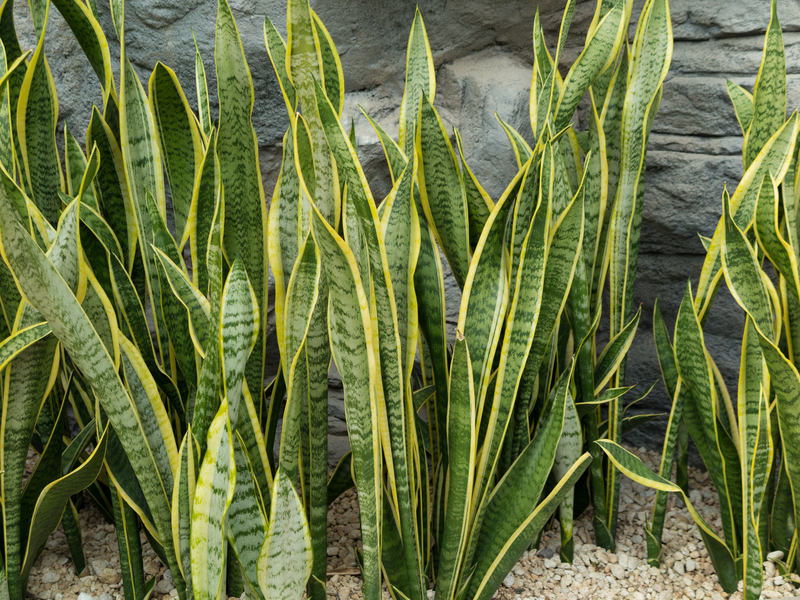A Greener Earth: Waste into Soil Revitalization
Posted on 16/09/2025
A Greener Earth: Waste into Soil Revitalization
As environmental challenges mount, turning waste into soil revitalization offers hope for a cleaner and healthier planet. This process not only manages unwanted byproducts but also restores soil health--forming the foundation for a greener earth. This comprehensive guide explores how diverse waste management techniques can create fertile, thriving soils while reducing landfill dependency and greenhouse emissions.

Understanding Waste as a Resource
What was once considered nothing more than rubbish is now recognized as a valuable resource for soil rejuvenation. Waste into soil revitalization employs organic and inorganic waste streams to boost soil fertility, enrich microbial activity, and promote sustainable agriculture.
The Growing Need for Sustainable Waste Solutions
- Landfill limitations: Global landfills face capacity crises, threatening nearby ecosystems.
- Greenhouse gas emissions: Decomposing waste releases methane and CO2, exacerbating climate change.
- Soil degradation: Modern agricultural practices and urban sprawl erode soil health, reducing its capacity to support life.
By redirecting waste streams into soil regeneration, we address these interconnected problems in one holistic approach, laying the groundwork for sustainable food production and ecosystem health.
Main Strategies to Transform Waste into Soil Revitalization
Not all waste is created equal. Understanding the sources and types of waste is crucial to the soil improvement process. Here are key pathways by which waste can contribute to a greener earth through soil revival:
1. Composting: Turning Organic Waste into Black Gold
Composting remains the cornerstone of direct organic waste revaluation. It involves the biological decomposition of organic materials--such as kitchen scraps, yard trimmings, and manure--into nutrient-rich humus. This process, when managed correctly, results in a soil amendment that improves both the physical and chemical properties of soil.
- Reduces landfill burden by diverting organic waste streams.
- Improves soil structure and water retention.
- Feeds beneficial soil organisms, which help cycle nutrients naturally.
Incorporating compost into gardens, farms, and urban green spaces not only reduces waste but significantly boosts soil carbon and living biodiversity.
2. Vermicomposting: Harnessing the Power of Worms
Vermicomposting introduces a living workforce--primarily red wiggler worms--to accelerate organic decomposition. The resulting worm castings are especially valuable for soil revitalization, rich in plant nutrients and microorganisms absent in traditional compost.
- Effective at processing small-scale food scraps
- Produces high-quality vermicast (worm manure)
- Can be practiced indoors or outdoors, making it accessible for urban households
3. Biochar: Charred Waste as a Soil Enhancer
Biochar is a form of charcoal produced from plant material via pyrolysis (burning in limited oxygen). Pure and stable, biochar acts like a soil sponge, absorbing nutrients and water, reducing leaching, and providing a habitat for microbial life. Studies affirm its effectiveness in improving sandy and degraded soils, sequestering carbon, and locking contaminants away from plant roots.
- Long-term carbon sequestration--biochar can persist in soil for centuries.
- Upcycles agricultural residues and wood waste
- Reduces nutrient runoff and water pollution
4. Anaerobic Digestion: Waste-to-Soil via Biogas
Anaerobic digestion processes organic waste (including food waste, animal manure, and even sewage) in oxygen-free environments to produce biogas for energy and digestate--a nutrient-dense byproduct perfect for soil amendment.
- Simultaneous renewable energy and soil amendment production
- Especially suited for municipal and agricultural waste streams
- Reduces odor and pathogens compared to raw sludge application
5. Green Manures and Cover Crops: Living Waste in Action
Planting fast-growing crops like clover, rye, or vetch solely to plow them into the soil is an ancient form of turning biological waste into a soil builder. These 'green manures' increase organic matter, fix nitrogen (in the case of legumes), suppress weeds, and prevent erosion--all reinforcing a vibrant, productive soil ecosystem.
How Waste Conversion Improves Soil Health
Robust, living soils are critical for all terrestrial life. Soil enrichment through waste-derived amendments delivers key benefits:
- Enhanced nutrient cycling: Organic amendments slowly release nitrogen, phosphorous, potassium, and micronutrients, reducing the need for synthetic fertilizer.
- Improved soil structure: Compost and biochar bind soil particles, increase porosity, and foster water infiltration.
- Boosted microbial diversity: Soils teeming with microbes resist disease and improve plant immunity.
- Stronger carbon sequestration: Adding organic matter locks atmospheric carbon in the soil for decades or longer.
- Increased resilience: Healthier soils respond better to drought, flooding, and other climate stresses.
Case Study: Compost-Driven Soil Revitalization in Urban Farms
Urban agricultural movements in cities like Detroit, New York, and Nairobi have successfully adopted food waste composting, transforming vacant lots and degraded soils into productive greenspaces. These projects highlight how local, circular waste management can re-green urban environments while tackling social challenges like food insecurity and poverty.
Addressing the Challenges of Waste into Soil Revitalization
Contaminant Concerns
Not all waste is suitable for soil application. Inorganic contaminants, such as heavy metals, plastic residues, or pharmaceuticals, can accumulate if waste streams are not carefully managed and monitored.
- Best practices include thorough source separation, testing, and adherence to government guidelines for land application.
Scaling Up: From Household to Industrial Waste Management
While homeowners can easily compost kitchen and yard waste, scaling to city or national levels poses logistical, educational, and infrastructural hurdles.
- Effective municipal composting programs and incentives encourage wider adoption.
- Investment in anaerobic digestion, large-scale composting, or biochar facilities accelerates waste conversion rates.
Soil Revitalization and Climate Change: A Critical Link
By implementing climate-smart soil management through waste valorization, nations can make significant inroads against climate change:
- Methane reduction: Diverting organic waste from landfills slashes methane emissions.
- Carbon drawdown: Soil acts as a carbon sink, storing CO2 through the addition of organic matter and biochar.
- Biodiversity enhancement: Rich, living soils encourage resilient ecosystems that buffer against climate extremes.
As more communities invest in soil restoration from waste, the compounding benefits--improved food security, cleaner water, and lower atmospheric carbon--become increasingly tangible.
Innovations Shaping the Future of Waste-to-Soil
Diversified Waste Streams
Emerging technologies are unlocking new waste streams for land restoration:
- Anaerobic digestion of municipal food waste provides energy and fertilizer.
- Bio-mining and eco-remediation of contaminated soils using specific waste types (like mushroom cultivation on coffee grounds).
- Conversion of paper and textile waste into organic soil amendments.
Policy and Community Engagement
Government incentives, education programs, and grassroots initiatives play a pivotal role in redirecting waste into soil renewal efforts.
- Zero-waste mandates encourage systematic diversion of compostable materials.
- Public investment in composting infrastructure and training delivers equitable access to recycling facilities and knowledge.
- Partnerships between local farmers, waste managers, and city leaders bridge urban and rural divides.

Getting Started: Steps for Individuals and Businesses
Transitioning waste into a soil resource doesn't require sweeping changes--small steps can create big impacts overtime:
For Households:
- Start a backyard compost bin or indoor vermicompost system.
- Source-separate food scraps and yard waste from trash.
- Support local farms or gardens employing compost and organic amendments.
For Businesses:
- Audit waste streams to identify compostable and recyclable materials.
- Partner with community composters or industrial processors.
- Explore biochar production using agricultural residues.
For Municipalities:
- Implement curbside compost collection services.
- Invest in large-scale composting, anaerobic digestion, or biochar facilities.
- Educate citizens on the benefits of waste-to-soil programs and how to participate.
Conclusion: Towards a Greener Earth
Waste into soil revitalization is much more than an alternative waste disposal option--it is a regenerative pathway that heals landscapes, supports human health, and restores ecological functions. By embracing a circular model where waste becomes the driving force for thriving soils, communities worldwide can advance toward a truly greener, more resilient earth. Whether through composting, biochar, anaerobic digestion, or innovative new technologies, every step taken to divert waste from landfills and return it to the land is a step forward for the planet and for future generations.
Let us transform our wastefulness into abundance, turning yesterday's refuse into tomorrow's renewal. The journey to soil revitalization starts with every banana peel, coffee ground, or leaf--treated not as garbage, but as the seed of a more sustainable, flourishing world.
Latest Posts
Conquering Herb Gardening: A Complete Guide
Enchanting Gardens: Winter Care Techniques for Plants
A Greener Earth: Waste into Soil Revitalization

